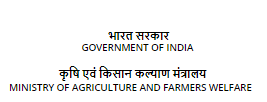NRC181
Background:
In soybean seeds, Kunitz trypsin inhibitor (KTI) and Bowman-Birk Inhibitor (BBi) arc two major serine protease inhibitors that affect protein digestibility. It is the former which contributes predominantly to the total trypsin inhibitor activity in soybean seeds. Both are proteinaceous molecules and hence arc heat labile, though to varying degree, by moist heating for 20 min. at 100°C. However, heat inactivation incurs extra cost and insolubilizes the protein. Through marker assisted selection, the institute earlier developed several Kunitz trypsin inhibitor free soybean genotypes for soy food processing industry but they were late maturing and smaller seed size. However, for the soymeal manufacturing industries such as M/s Suminter India Organics Pvt Ltd Mumbai such type of soybean grains are being sought which are not only genetically free from KTI with protein content at least 40% but also have larger seed size and early maturing traits suiting the requirement of both the industry and farmers
Technology Details:
Soybean grains used as raw material for processing food products arc desired to be free from the antinutritional factor Kunitz trypsin inhibitor, which is prime component of trypsin inhibitors affecting the protein digestibility. In soymeall manufacturing industry, however, such type of soy grains arc desired which are not only free from Kunitz trypsin inhibitor but also possess at least 40% protein content. Though, the concentration of this antinutritional factor that affects protein digestibility can be brought down through heat treatment, however this process incurs huge cost lo the industry and affects the solubility of the protein. These traits in soybean grains are more important for the organic soymeal manufacturers, for whom the use of hexane at high temperature to extract the oil is not permissible. The manufacturers have to resort to mechanical extruders to remove the oil to manufacture soymeal, which leaves relatively higher trypsin inhibitor content in the final soymeal products compared to the soymeal processed through hexane. On the other hand, farmers seek such type of soybeans which arc early maturing and bold seeded. NRCl 81 developed by ICAR-Indian Institute of Soybean Research, Indore through Marker Assisted breeding is free from Kunitz trypsin inhibitor, possesses approximately 41% protein content, with early maturity (90 days) and large seeded (average 100 seed weight-12 g genetic potential up to 15 g depending upon the growing location). License for this specialty genotype has been sought by Mis Suminter Organic India Pvt.Ltd, Mumbai which is the leading company manufacturing organic soymeal in the country. The genotype has been assigned IC0640780 by ICAR-NBPGR, New Delhi. Section


